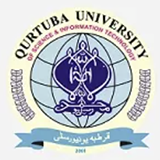Qurtuba University of Science and Information Technology (QUSIT) is a private higher education institution in Pakistan. The university was established in 2001 as Qurtuba Institute of Information Technology and was upgraded to a university in 2008 and renamed Qurtuba University. QUSIT is committed to providing high-quality science and technology education and developing students' practical skills and innovative capabilities. Here are some detailed information about QUSIT:
Overview
Established: 2001
Location: The main campus is located in Dir, Khyber Pakhtunkhwa Province, Pakistan, and has branches in several other cities.
Nature: Private higher education institution
Accreditation: QUSIT is accredited by the Higher Education Commission (HEC) of Pakistan and is a member of professional bodies such as the Pakistan Engineering Council (PEC).
Mission and Vision
Mission: To provide high-quality education and research to cultivate students with professional knowledge, practical skills and good ethical values to enable them to succeed in a globalized working environment.
Vision: To be an excellent institution of higher education that meets international standards in teaching, research and social services and contributes to the development of the country.
Academic Programs
Undergraduate Programs:
Engineering: Electrical Engineering, Mechanical Engineering, Civil Engineering, Computer Engineering, etc.
Information Technology: Software Engineering, Computer Science, Information Technology, etc.
Management: Business Administration (BBA), Human Resource Management, Marketing, etc.
Science: Applied Physics, Chemistry, Biotechnology, etc.
Social Sciences: Psychology, Sociology, etc.
Islamic Studies: Islamic Studies, Quranic Interpretation, etc.
Postgraduate Programs:
Engineering: Master of Electrical Engineering (MS EE), Master of Mechanical Engineering (MS ME), etc.
Information Technology: Master of Software Engineering (MS SE), Master of Computer Science (MS CS), etc.
Management: Master of Business Administration (MBA), Project Management (MSc Project Management), etc.
Science: Master of Applied Physics (MS Applied Physics), Master of Chemistry (MS Chemistry), etc.
Social Sciences: Master of Psychology (MSc Psychology), Master of Sociology (MSc Sociology), etc.
Islamic Studies: Master of Arts in Islamic Studies (MS Islamic Studies), etc.
Doctoral Programs: PhD programs are offered in certain fields, such as engineering, information technology, and Islamic studies.
Educational Features
Practical Orientation: QUSIT emphasizes a teaching method that combines theory with practice, and strengthens students' practical skills through laboratory work, projects, and internships.
Industry Cooperation: It has established partnerships with many companies and institutions to provide students with internship opportunities, career guidance, and employment opportunities.
Research and Innovation: Teachers and students are encouraged to conduct research and publish their research results through academic journals and conferences.
Islamic Values: Incorporating Islamic values into the educational process to cultivate students' good moral qualities.
Faculty
Professional Background: QUSIT has a faculty of experienced professors and industry experts who have made significant achievements in their respective fields.
Continuous Development: Faculty members often participate in professional development activities to keep their teaching content in sync with the latest technology and industry developments.
Campus Facilities
Teaching Facilities: Modern classrooms, laboratories, libraries, and computer centers.
Living Facilities: Dormitories, canteens, and other living facilities are provided.
Sports Facilities: Including sports fields, gyms, etc., students are encouraged to participate in sports activities.
Mosque: There is a mosque on campus to facilitate students to carry out religious activities.
Student Life
Clubs and Activities: Supports a variety of student clubs and interest groups such as Engineering Society, Computer Club, Cultural Club, etc.
Career Development: There is a Career Development Center that provides services such as career planning, resume writing and interview skills training to help students prepare for the job market.
Social Impact
Education Popularization: QUSIT has played an important role in improving the level of education in remote areas.
Community Service: Actively participate in community service projects to promote social development through education and research.
Alumni Network: A strong alumni network has been established to provide career development support for current students and graduates.
Conclusion
QUSIT University (QUSIT) is an important private higher education institution in Pakistan, known for its high-quality education in the fields of engineering, information technology and management. Through its wide range of academic programs, modern facilities and close cooperation with the industry, QUSIT provides students with a good environment for learning and development.
-
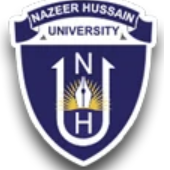
Nazeer Hussain University
-
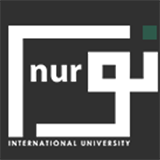
Nur International University
-

FATA University
-

Shaheed Benazir Bhutto City University
-
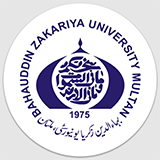
Bahauddin Zakariya University
-

University of Agriculture, Faisalabad
-

Superior Group of Colleges
-
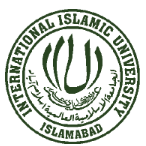
International Islamic University, Islamabad
-

University of the Punjab
-

The University of Lahore
-

Mesoamerican University
-

Istmo University
-

Mariano Galvez University of Guatemala
-

Regional University of Guatemala
-

Galileo University
-

Francisco Marroquín University
-

Rafael Landívar University
-

University of the Valley of Guatemala
-

University of San Carlos of Guatemala
-

Technological Institute of Tlaxcala Plateau
-

Golfo University
-

Technological University of South Sonora
-

Technological University of Huejotzingo
-

Tizimín Institute of Technology
-

Chilpancingo Institute of Technology

